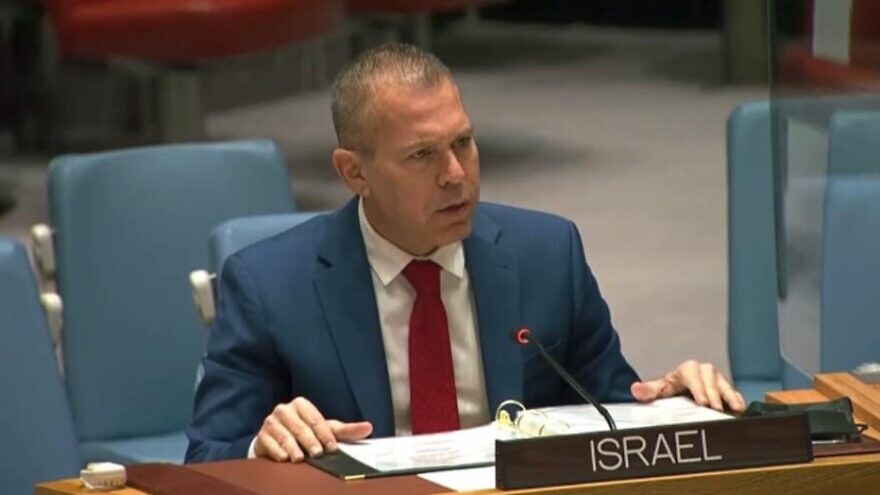Israel’s ambassador to the United Nations and the United States, Gilad Erdan, met on Wednesday with U.N. Secretary-General António Guterres and the U.N. Alliance of Civilizations (UNAOC)’s anti-Semitism envoy Miguel Moratinos to encourage the United Nations to adopt the IHRA’s definition of anti-Semitism.
Adopting the IHRA definition will allow the United Nations to more efficiently fight anti-Semitism within its ranks, including in the United Nations Human Rights Council and the United Nations Relief and Works Agency for Palestine Refugees in the Near East (UNRWA), said Erdan. It will also facilitate improved sanctioning of state representatives who espouse anti-Semitism, as officials from Iran and other countries have done on numerous occasions on U.N. stages.
The definition, he said, “provides an answer not just to the fight against classical anti-Semitism, but also against modern anti-Semitism—including the negation of Israel’s right to exist, along with discriminatory treatment and demands of Israel that are not made of any other country.”
The Israeli ambassador went on to emphasize that “it cannot be that even Arab countries are starting to adopt the definition and only the U.N. remains behind.”
Just this week, he added, the Anti-Defamation League had published a report showing that a third of Jewish students reported experiencing anti-Semitism on U.S. campuses over the past year.
“Fifteen percent of Jewish students felt the need to conceal their Jewish identity on campus,” said Erdan.
“Sadly, anti-Semitism is everywhere, and is a phenomenon that the United Nations cannot ignore,” he said, adding that the United Nations had a duty to do more than just talk about it.
“Recognizing the correct definition of anti-Semitism is a first and important step in being able to fight it, and I expect the United Nations to move quickly on this issue. If the definition is adopted by the United Nations, it will be an important achievement for the State of Israel and the Jewish people,” Erdan said.
This article first appeared in Israel Hayom.

























